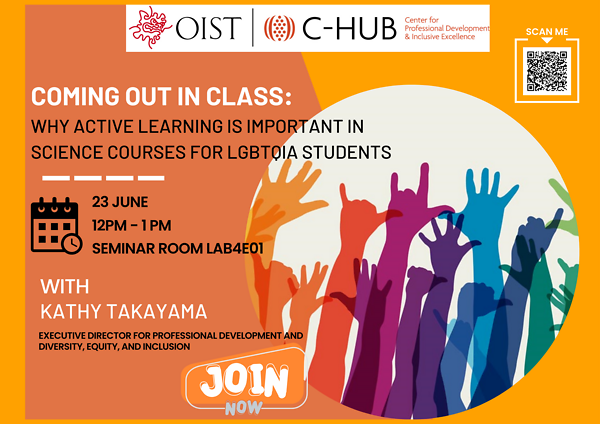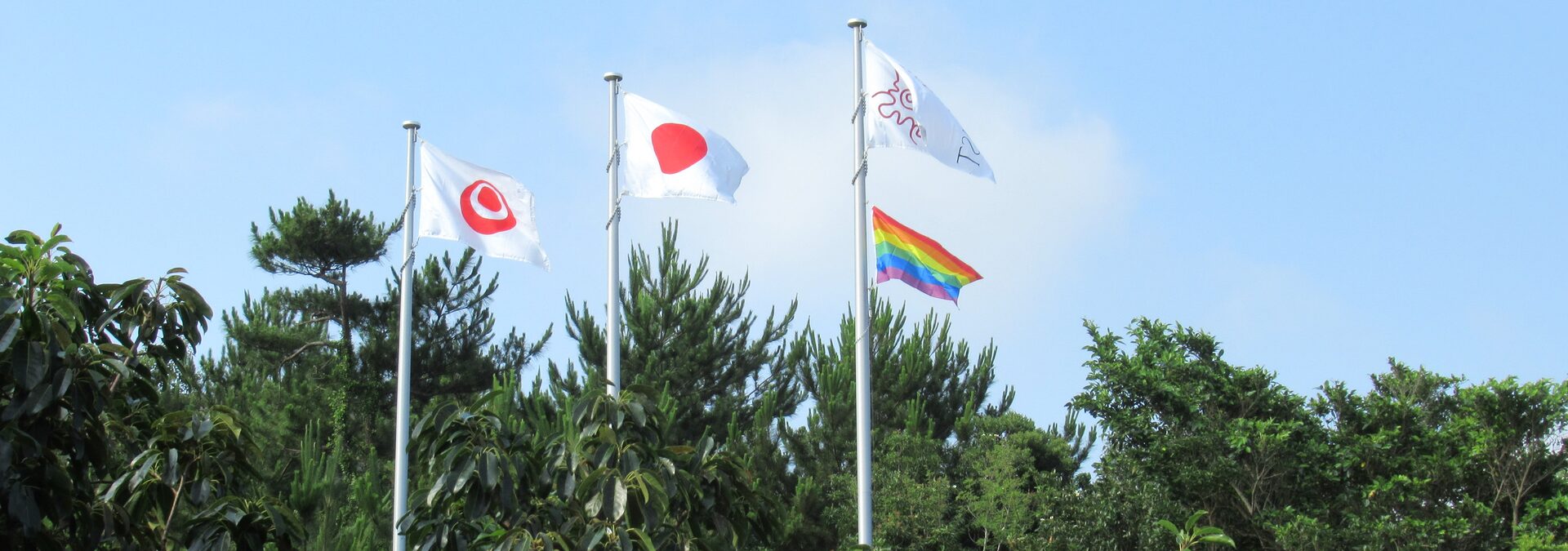Coming out in class: Why active learning is important in science courses for LGBTQIA students

Date
Location
Description
Workshop description and goals:
The marginalization and bias against members of our LGBTQIA community and other minoritized populations in STEM is not only unjust and harmful, but inhibits creativity and innovation. Active learning and an inclusive class climate promotes the relevance of students’ LGBTQIA identities to their scientific interests and increases engagement, performance, and persistence. In this workshop, we will explore how active (inclusive) learning benefits all students, and is especially beneficial for individuals from underrepresented groups. The strategies discussed are applicable not only to science courses, but can be used for other instructional settings as well.
Audience: Faculty, students, researchers and staff.
Format: This workshop will start with general information and evidence. Participants will have the opportunity to apply this information to creating constructive climates in the classroom, research unit, and workplace.
Note: No lunch is provided during the event, but you are welcome to bring your own food.
Register now
References:
E. A. Cech, T. J. Waidzunas, Systemic inequalities for LGBTQ professionals in STEM. Sci. Adv. 7, eabe0933 (2021).
K.M. Cooper, S.E. Brownell, Coming out in class: Challenges and benefits of active learning in a biology classroom for LGBTQIA students. CBE Life Sci. Educ. 15, ar37, 1-19 (2016).
C. Díaz-García et al. Gender diversity within R&D teams: Its impact on radicalness of innovation. Innovation 15, 149–160 (2013).
B. Hofstra et al. The diversity-innovation paradox in science. Proc. Natl. Acad. Sci. U.S.A. 117, 9284–9291 (2020).
M. Nathan, N. Lee, Cultural diversity, innovation, and entrepreneurship: Firm-level evidence from London. Econ. Geogr 89, 367–394 (2013).
S. E. Page, The Diversity Bonus: How Great Teams Pay Off in the Knowledge Economy (Princeton University Press, 2017).
E.J. Theobald et al. Active learning narrows achievement gaps for underrepresented students in undergraduate science, technology, engineering, and math. Proc. Natl. Acad. Sci. U.S.A. 117, 6476 – 6483 (2020).
Feedback Form

Attachments
Subscribe to the OIST Calendar: Right-click to download, then open in your calendar application.



